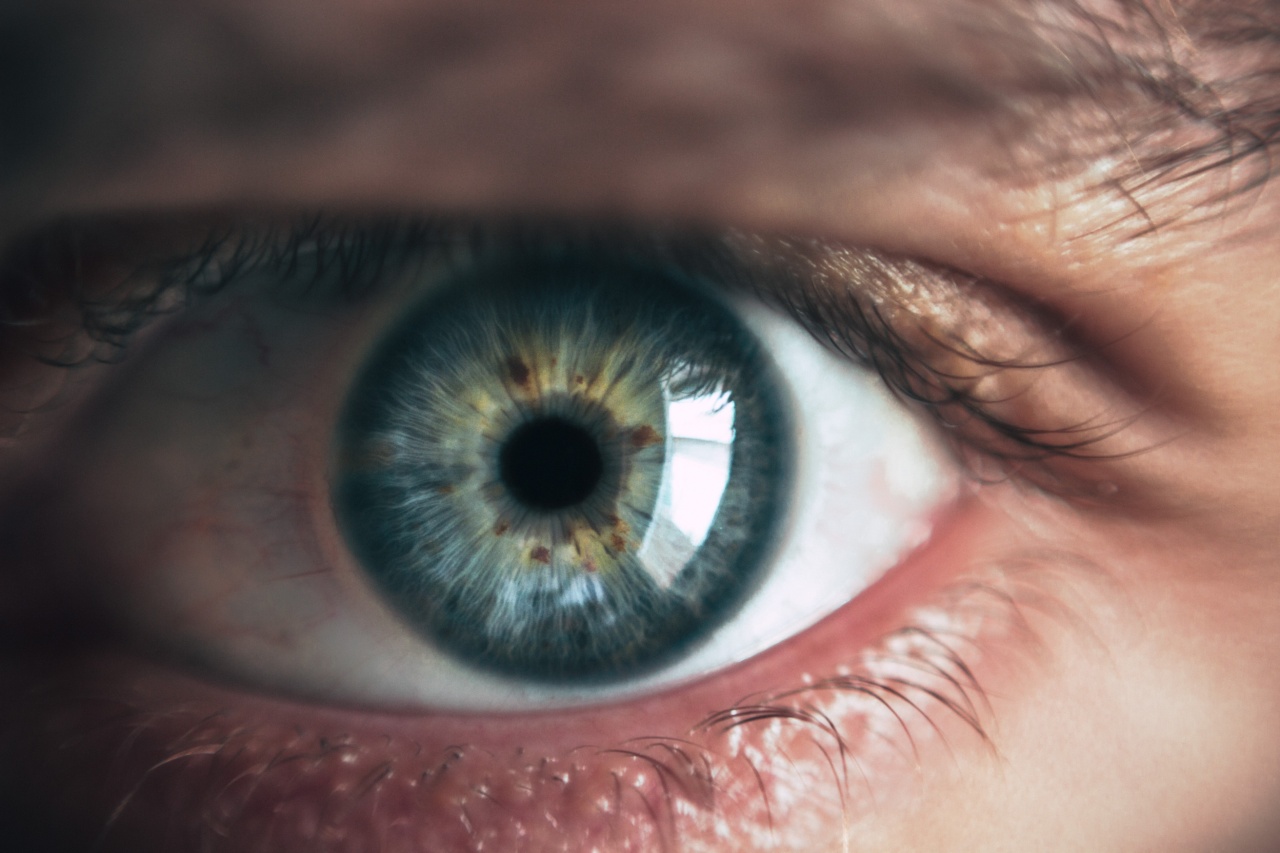Blurred vision refers to a condition in which objects appear hazy, out of focus, or less sharp than usual. It can affect one or both eyes and can occur suddenly or gradually over time.
Blurred vision can be a symptom of various underlying conditions, some of which may require immediate medical attention. In this article, we will explore the common causes of blurred vision and discuss potential ways to address them.
Refractive Errors
Refractive errors, such as nearsightedness (myopia), farsightedness (hyperopia), and astigmatism, are common causes of blurred vision.
These errors occur when the shape of the eye prevents light from focusing directly on the retina, resulting in blurred or distorted vision. Eyeglasses, contact lenses, or refractive surgery like LASIK can help correct these refractive errors and restore clear vision.
Cataracts
Cataracts refer to the clouding of the lens in the eye, which can lead to blurred vision.
It is commonly associated with aging but can also develop due to other factors like prolonged exposure to UV radiation, certain medications, or underlying medical conditions like diabetes. Cataract surgery is a common and effective treatment option for improving vision when cataracts start to interfere with daily activities.
Glaucoma
Glaucoma is a group of eye conditions that cause damage to the optic nerve, leading to vision loss over time.
Acute angle-closure glaucoma, a specific type of glaucoma, can cause sudden blurred vision, severe eye and head pain, and even nausea or vomiting. Lowering intraocular pressure through medication, laser treatment, or surgery is necessary to manage and treat glaucoma effectively and prevent further vision loss.
Macular Degeneration
Macular degeneration affects the macula, which is the central part of the retina responsible for sharp, detailed vision. Blurred or distorted central vision is a common symptom of this age-related condition.
While there is no cure for macular degeneration, certain treatment options such as injections, laser therapy, and lifestyle changes like incorporating a healthy diet and quitting smoking can help slow down the progression of the disease and maintain vision.
Diabetic Retinopathy
Diabetic retinopathy is a complication of diabetes that occurs when high blood sugar levels damage blood vessels in the retina. This condition can cause blurred vision, floaters, and even complete vision loss if left untreated.
Proper diabetes management, including regular eye exams, controlling blood sugar levels, and laser therapy or injections in advanced stages, can help protect vision and prevent further damage.
Pregnancy
Blurred vision during pregnancy is relatively common and is often attributed to hormonal changes, fluid retention, and increased blood volume. In most cases, the vision returns to normal after delivery.
However, any significant or persistent changes in vision during pregnancy should be promptly evaluated by an eye care professional to rule out any underlying conditions.
Dry Eyes
Dry eyes occur when the eyes do not produce enough tears or the tears evaporate too quickly, leading to discomfort and blurred vision.
Prolonged screen time, environmental factors, certain medications, and underlying health conditions can contribute to dry eyes. Artificial tears, prescription eye drops, lifestyle modifications, and addressing the underlying cause can help relieve dryness and improve vision clarity.
Medications
Some medications, particularly those that affect the central nervous system or have anticholinergic properties, can cause blurred vision as a side effect.
If you experience blurred vision while taking medication, it is essential to consult your healthcare provider to discuss alternative options or adjust the dosage to alleviate this symptom.
Eye Infections and Inflammation
Eye infections, such as conjunctivitis (pink eye), uveitis, or keratitis, can result in blurred vision along with other symptoms like redness, itching, or discharge.
Prompt medical attention and appropriate treatment with antibiotics, antiviral, or anti-inflammatory medications are crucial to control the infection or inflammation and restore clear vision.
Foreign Bodies or Eye Injuries
Foreign bodies, such as dust, dirt, or small particles, can cause irritation or injury to the eye, leading to blurred vision.
It is essential to avoid rubbing the eye and seek immediate medical attention if a foreign body becomes lodged in the eye to prevent further damage and restore clear vision.
When to Seek Medical Help
While occasional blurry vision may be temporary or resolve on its own, it is important to be aware of warning signs that require prompt medical attention. Seek immediate help if you experience:.
- Sudden onset of blurred vision in one or both eyes
- Blurred vision accompanied by severe eye pain or headache
- Blurred vision after an eye injury
- Blurred vision along with other neurological symptoms
- Blurred vision with eye redness, discharge, or sensitivity to light
- Blurred vision in conjunction with diabetes or high blood pressure
Your eye doctor will conduct a comprehensive eye examination and may recommend further tests or specialist consultations to identify the underlying cause and provide appropriate treatment.
Conclusion
Blurred vision can be a concerning symptom that may indicate an underlying eye condition or health issue. While occasional blurriness may be due to temporary factors like fatigue or dryness, persistent or sudden changes in vision should not be ignored.
Identifying the cause of blurred vision requires a professional evaluation and, in some cases, immediate medical attention. Whether it is through corrective lenses, surgery, lifestyle modifications, or managing an underlying condition, addressing the common causes of blurred vision can help restore clear and comfortable vision.





























